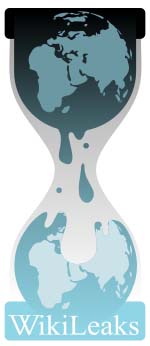I went on CTV, the Canadian News Network, to debate Martin Collicott, a former Canadian ambassador, over the WikiLeaks document release. He opposed the release, making the usual arguments about how this will make normal diplomacy difficult, that diplomats can’t report back to headquarters without risk of leaks, that it was vandalism, that people got a thrill out of doing something naughty, and that what’s damaging hasn’t come out yet.
Here’s the text of what I said:
The anchor asked: Have we heard anything that could potentially damage relations between the US and foreign countries or threaten security?
Lucy: I can’t think of anything. A lot of it is diplomatic trivia. If you think that saying that Italian Prime Minister Berlusconi parties at night and therefore doesn‘t do his job in the day, I don‘t that that is going to change relations between Italy and the United States. A lot of the other descriptions of leaders”I think Hillary Clinton got it right when another diplomat told her, don‘t worry about it, you should see what we say about you. These discussions of foreign leaders are commonplace. That is not why governments take policies or make deals with the United States. Countries act on their interests. And those interests have nothing to do whether with some political officer or ambassador says something a little funny about Sarkozy or some other head of state.
These documents were of classifications that were not super-sensitive. They were being sent to 3 million people. If 3 million people had access, anything that‘s really super-sensitive is not going to get out to 3 million people. These were the kinds of things newspapers were already reporting and in some cases ambassador and others were already leaking to their favorite journalists. Now the media that wrote the stories, that is writing the stories, the NY Times, the Guardian in London, Le Monde, Der Spiegel, El Pas in Spain are not writing things and WikiLeaks is redacting things that would cause serious trouble.
So this is international politics as usual. And it is very helpful, very educational for people to get a sense of what is going on.
I came away after reading some of the Middle East documents with increased respect for Secretary Hillary Clinton. I think she is doing a very good and a very tough job and I would not be surprised if that is the conclusion that analysts draw from these documents.
Q: If WikiLeaks is about transparency, why doesn’t the person or people who gather these documents come forward?
People who leak, including when the government leaks, they don‘t leak and put their name to the leaks. That‘s the whole point of it that you don‘t know who gave the documents. We know that they’re genuine, so it doesn‘t really matter who gave the documents, what matters is what they say and that the public can finally get a sense of what is being done by their governments and get a better understanding of these problems. That is great value.
People are saying something is going to come and its going to be terrible and its going to be dangerous. They said that about the Iraqi and Afghan war documents and we still haven‘t seen the document that is so dangerous and what is going to be so harmful. So I’m waiting for what’s going to be happening here.



Amazon.com and Paypal have sacrificed the 1st Amendment for $. Here are two tiny steps I’ve taken.
Paypal has cut wikileaks off its payments streams:
http://www.huffingtonpost.com/2010/12/04/paypal-cuts-wikileaks-fro_n_792000.html
After Amazon.com kicked wikileaks off its cloud platform, Pentagon Papers leaker Daniel Ellsberg called for a broad boycott:
http://www.rawstory.com/rs/2010/12/pentagon-papers-leaker-daniel-ellsberg-calls-boycott-amazoncom/
I’ve given my prime amazon membership and asked them to take their records of me off their website. I’ve asked paypal to do the same.